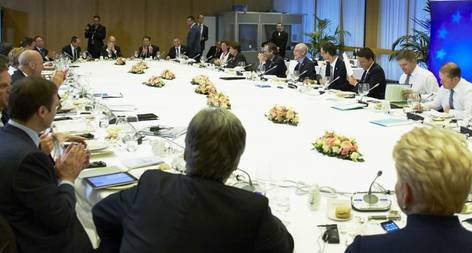NEWS
Informal meeting of the European Council
The Prime Minister of the Republic of Slovenia, Alenka Bratušek, attended the informal meeting of the Heads of State or Government of the EU, at which EU leaders discussed the results of the European elections and the process leading to the nomination of the future President of the European Commission. “The European elections have shown that certain things will have to change,” said the Prime Minister after the meeting, explaining that EU leaders devoted most of their time to EU priorities, which are far more important than names. She highlighted four priorities: competitiveness, growth, jobs, and young people.
At an informal dinner, EU leaders analysed the results of the European elections, drawing attention to the low election turnout and the strong showing by Eurosceptic parties. They agreed that certain things would have to change. Most of their attention was devoted to priorities for the EU for the next five years. Although the priorities have not yet been finalised, they will have to be soon, explained the Prime Minister. The President of the European Council, Herman Van Rompuy, received a mandate from EU leaders to start consultations with the European Parliament and the Member States to identify the best possible candidate. In this regard, the Prime Minister said she hoped that the new president would receive broad support, as this would facilitate the implementation of the agreed priorities. She said that this office should be taken by a person who is capable of implementing these priorities, expressing her hope that one of the important positions would be filled by a woman. In her words, this principle enjoys strong support among EU leaders, but we will have to wait for a month or two to see the outcome.
Ahead of tomorrow’s meeting, the Heads of State or Government also discussed the situation in Ukraine after Sunday’s presidential election. The Slovenian Prime Minister highlighted the urgent need for an immediate response to the damage caused by the floods in the Balkans.





